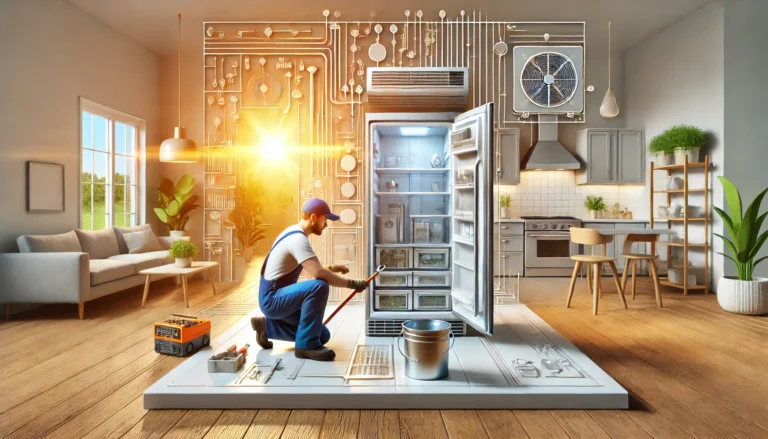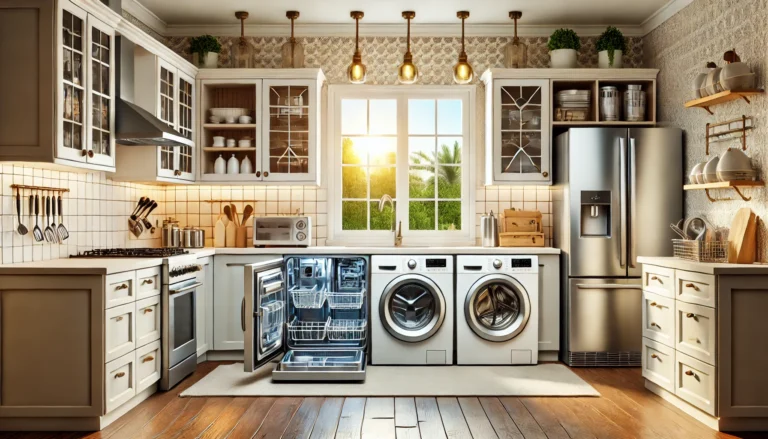In this era, the circular economy emerges as a transformative model for reducing waste, preserving resources, and mitigating environmental impacts. Central to this model lies the concept of appliance repairs, a seemingly mundane activity that plays a pivotal role in fostering a more sustainable and resource-efficient world. This blog post delves into how appliance repairs fit into the broader concept of a circular economy, underscoring the benefits of reuse and refurbishment in reducing environmental impact.
Understanding the Circular Economy
Firstly, the circular economy is a systemic approach to economic development designed to benefit businesses, society, and the environment. Contrasting the traditional linear economy, which follows a ‘take-make-dispose’ pattern, the circular economy operates on principles that emphasize designing out waste and pollution. This keeps products and materials in use, and regenerating natural systems. It advocates for the reuse, repair, refurbishment, and recycling of products to extend their lifecycle and minimize waste.
Appliance Repairs: A Keystone of the Circular Economy
Significantly, appliance repairs play a crucial role in the circular economy by extending the life of products. This reduces the demand for new materials. Every time an appliance is repaired instead of replaced, it decreases the need for raw materials in manufacturing new products. This not only conserves resources but also reduces greenhouse gas emissions associated with production and disposal.
Benefits of Reuse and Refurbishment
- Resource Conservation: Repairing and refurbishing appliances conserve resources by utilizing existing materials and components, thereby reducing the need for new raw materials.
- Waste Reduction: Moreover, by keeping appliances in use longer, repair and refurbishment activities significantly diminish the amount of waste sent to landfills and incinerators, where it can contribute to pollution and greenhouse gas emissions.
- Energy Efficiency: Modern repair practices often include upgrading appliances to be more energy-efficient, further lowering their environmental impact over their extended lifespan.
- Economic Savings: For consumers, repairing appliances is usually more cost-effective than purchasing new ones, saving money and promoting a culture of repair and maintenance.
- Job Creation: Furthermore, the appliance repair industry supports the economy by creating skilled jobs in the repair and refurbishment sectors. This benefis local businesses and communities.
Challenges and Opportunities
While the benefits are clear, integrating appliance repairs into the circular economy presents certain challenges. A significant barrier is the culture of disposability, driven by consumerism and the perceived convenience of replacing rather than repairing. Additionally, manufacturers sometimes design appliances to be difficult to repair, a practice known as planned obsolescence.
Overcoming these challenges requires concerted efforts from consumers, businesses, and policymakers. Initiatives like the Right to Repair movement, advocating for consumers’ ability to repair their own appliances, are crucial. Encouraging manufacturers to design products with repairability in mind is essential for the transition to a circular economy.
Conclusion
In conclusion, the role of appliance repairs in the circular economy is undeniably significant. By embracing repair and refurbishment, we can make substantial strides toward sustainability, resource conservation, and waste reduction. As consumers, opting to repair our appliances is a small but powerful step towards a more sustainable future. For the circular economy to flourish, it’s imperative that all stakeholders recognize the value of keeping products, including appliances, in circulation for as long as possible.
For your appliance repair, contact us here


